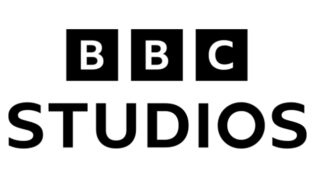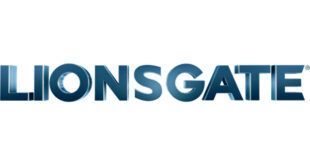In Cannes today to receive the inaugural Studio of Distinction Award at MIPCOM, Tim Davie and Tom Fussell outlined BBC Studios’ global ambitions and the pubcaster’s emphasis on innovation and impactful content.
Fussell, CEO of BBC Studios, opened the Media Mastermind Keynote by outlining the gains at the commercial division of the British pubcaster. “Storytelling is everything to us at BBC Studios. Our stories illuminate the unknown and they open hearts and minds,” Fussell said.
BBC Studios returns to MIPCOM with a “new global ambition,” he said. The BBC Studios production studio had a turnover of more than £1.1 billion last year, “and is growing very rapidly this year.” The company also operates a channels and streaming business that spans 215 countries, with divisions that include UKTV, BritBox and BBC.com.
“Our production studio has a customer base that is second to none, with real global breadth,” Fussell explained, with 75 percent of its revenues this year coming from outside of the BBC.
Fussell touted BBC Studios’ gains in scripted. “We’re investing more and more in the U.K.’s most exciting talent and creative labels,” Fussell said, announcing that BBC Studios has taken full ownership of Sid Gentle Films and that Mark Linsey is relocating from the U.K. to Los Angeles to ramp up its output in the U.S. He also highlighted BBC Studios’ strengths in factual, formats and kids’ content; the investments BBC Studios is making in local production teams across the globe; and the expansion of its brands and licensing business. “We want to seek paths to grow together in areas like education, the metaverse, social video and gaming.”
Fussell continued: “So here we are at BBC Studios, a business that’s doubled in the last five years, a business with a passionate belief in the BBC and its values, and a business that evermore is a key part of the BBC strategy. Our commercial ambition is to double again in size in the next five years, growing not just our scale but our development spend, our content investment and our creative ambition. This is ambitious given the current economic conditions, but the success of our production studio gives us absolute confidence. We have the investment capacity to fuel opportunities, both organic and by acquisition. Our ownership structure means we can take long-term views of our prospects. And because of that long-term thinking, we can invest and really commit with confidence. We can only achieve this ambition alongside our international partners. You all help us create those bold stories and bring them to audiences everywhere.”
Fussell then welcomed onto the stage Lyse Doucet, chief international correspondent and senior presenter at the BBC, to interview Davie, director general of the pubcaster, which is marking its 100-year anniversary. The organization continues to be guided by timeless values, Davie said, which include “treating the audience with intelligence, with care.” The other key to its longevity has been “a healthy paranoia about relevance. And I think the BBC, for all its reputation as a traditional organization, if you look at it, has innovated like crazy. It’s that incessant desire to change. And I would say having the lynchpin of significant public funding allows us to play a bit of a long-term game. That’s why we’re still here.”
Doucet asked Davie about whom he sees as the BBC’s biggest competition now. “It is really fatal to define your competition too narrowly,” he responded. “The biggest competition I see, certainly in my household, is gaming. Sometimes we focus way too much in terms of what we might see as direct competition. Our battle is for time. I like Netflix, I like Disney+—they’re great services, and they’re good partners. We’re not going to beat them. That’s not what we’re trying to do. We are a £5 billion turnover operation, of scale. We could triple our size alongside these partners. We’ve just got to be differentiated. My view is: look at the market as broadly as you can.”
On battling the financial capabilities of the global streamers, Davie said, “We’ve got some financial clout, but we’re not going to be in the same zone as an Amazon or an Apple. You have to double down on your points of difference. We do certain things better than anyone in the world, and that is the quality of what we’ve got, the storytelling we’ve got, infused by British creatives, but not solely—we’re now a global operation. The key here is not to copy the market.”
Davie continued, “We genuinely can allow creative risk. Take a swing. Don’t just go for a derivative work. We can handle it with our economic model, with this great partnership with the BBC. And we’re not trying to win by just making more and more volume.”
On what’s next in content, Davie said, “There’s going to be more innovation. More experimentation with young writers, new writers coming through. The great thing about the BBC is, in the U.K., I don’t have to make a profit and loss work every year. I can take a swing. I’m not dependent on advertising. We want a return on investment for our customers. I genuinely care that we actually make a difference and the work we do is good; it’s not solely about driving shareholder return in the short term. By just being who you are and really swinging at it, that’s where you get really good commercial return. We’re not going to have 100 percent of people’s viewing time. When we all go home, we’ve got too much to watch. BBC Studios is saying, We’re going to make work where you will not waste your time. We treat an audience intelligently. The best TV I’ve watched makes me work a little bit. They’re not patronizing to me. I do not believe there’s an incessant dumbing down here. When you go home, you look for quality work. BBC Studios can be at the forefront of that.”
Davie added, “The model for us is not to be limited to a British sensibility. BBC Studios is about a set of values and principles and how we think. We are obsessed with trust. Is it trusted work? Is it work that has been cared for and underpinned by standards? I think these public-service values are a differentiator. Those values on a global basis are getting more important. BBC Studios is not a British creative company. It’s a BBC creative company.”
On the kinds of new ideas he’s looking for, Davie said, “The problem is the formulaic nature of the industry where it’s trying to limit risk. In a hyper-competitive situation, you tend to limit risk. So let’s have a detective show with two protagonists. One has a troubled past. We all know the construct. If there are writers in the room—I’d take all of that and throw it in the bin. We are genuinely a creative studio that wants to take a writer’s vision. Bring us something fresh. I want someone that treats an audience with intelligence and is not saying, I’ve got to de-risk this whole enterprise to be safe. I’m watching too much stuff where I just feel, I know what you’re doing here. The other thing is, we do like long-running strands, we like to make commercial returns for our partners, we’re very focused on that, but I do think we need to give creative freedom and allow ideas to take shape. The amazing financial success of Studios, which I think is a massive growth business for the BBC, I’m so proud of it, but I’m equally proud that we do it in the right way and that that creative work is lovely and beautiful. If you come and work with Studios as a writer, you will find it a pleasant experience. Life is just too short to work with people who screw with your head. The BBC is a supportive environment. We only hire people now who work in the right way. And I care about that desperately. When you come here, you’ll find it a rewarding experience.”





